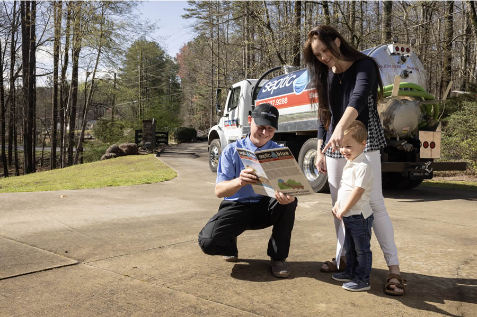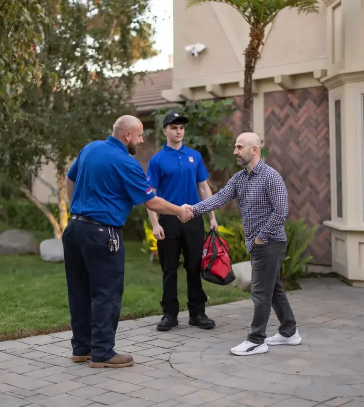When a lightning storm hits your area, safety should be your first priority. Many homeowners forget how fast lightning can travel and how easily it can damage wiring, appliances, and even the structure of a home. If you ever feel unsure or worried during a storm, reaching out to an reliable electrician in Parker Co can help you understand what’s going on with your electrical system and keep your home safe. Lightning is powerful, unpredictable, and something no one should take lightly.
Below are nine simple and practical safety tips that can help keep your home and family protected when lightning strikes close by.
1. Stay Indoors Until the Storm Fully Passes
When lightning is nearby, staying indoors is the safest place to be. Many people make the mistake of stepping outside too early because the rain has slowed, but lightning often strikes even after the heaviest part of the storm is gone. The safest rule is to wait at least 30 minutes after you hear the last thunder.
- Avoid going outside until the storm is completely over.
- Stay away from open doors and windows.
- Keep kids and pets indoors until everything has settled.
- Watch weather updates so you know when the storm has moved away.
2. Stay Away from Electrical Devices
During a lightning storm, electricity can travel through wiring and suddenly damage devices or shock anyone using them. It’s smart to unplug items that are not needed, but only do this before the storm begins—not during it. Once the lightning starts, just avoid using anything that depends on wiring.
- Do not touch plugged-in devices during lightning.
- Avoid desktop computers, wired game consoles, and wired kitchen appliances.
- Let phones and tablets charge before the storm begins.
- Use battery-powered items if you need them.
3. Avoid Using Water Sources Indoors
Water pipes can conduct electricity, which means lightning can travel through showers, sinks, and washing machines. Many people don’t realize this, but you should avoid water completely during an active lightning strike nearby.
- Do not shower or bathe during a storm.
- Avoid washing dishes or hands under running water.
- Don’t use water-based appliances such as washers.
- Wait until thunder has stopped before using water again.
4. Stay Off Corded Phones
Most modern phones are wireless, but if you still have a landline or corded phone, avoid it during lightning storms. Lightning can travel through the wiring and cause severe shocks. Wireless cell phones are safe to use as long as they’re not plugged in.
- Avoid corded phones during lightning.
- Only use wireless or mobile phones.
- Keep phones unplugged until the storm ends.
- Don’t stand near phone jacks or wiring.
5. Keep a Safe Distance from Windows
Lightning does not need to strike your home directly to cause damage. The strong flash and thunder shockwaves can shatter glass or cause objects to fall. Staying a safe distance from windows is an easy way to protect yourself.
- Do not stand right next to windows.
- Keep blinds or curtains closed during storms.
- Avoid leaning on walls connected to outdoor areas.
- Move to an interior room if the storm feels too close.
6. Turn Off Unnecessary Electronics
Electronics can get damaged when lightning hits a power line. Turning things off helps reduce the risk of electrical surge damage. Surge protectors help, but they don’t offer complete protection against direct lightning strikes.
- Switch off TVs, computers, sound systems, and gaming devices.
- Turn off appliances you’re not actively using.
- Keep major devices unplugged when storms are common in your area.
- Have a surge protection system installed for long-term safety.
7. Keep Outdoor Items Away from Power Lines
Items left outside during storms—like metal chairs, ladders, or garden tools—can become dangerous if lightning hits nearby. Metal objects conduct electricity, and lightning can jump from one object to another.
- Bring metal items inside before storms begin.
- Avoid touching anything metal outdoors during lightning.
- Keep a safe distance from power lines.
- In case a power line falls, stay far away and call for help immediately.
8. Have a Surge Protection System Installed
Power surges from lightning can damage every appliance in your home at once. A whole-home surge protection system helps reduce this risk. It’s a smart step for any homeowner, especially in areas with frequent storms.
- Surge protectors help protect appliances from sudden power spikes.
- You can use both whole-home and individual strip protectors.
- Having a professional install them is safer than DIY attempts.
- A safety check from an Electrician in Parker Co can help you learn which option is best for your home.
9. Know When to Call an Electrical Professional
If you notice signs of electrical damage after lightning—like burning smells, tripping breakers, or flickering lights—you should call a professional right away. Lightning can harm wiring inside the walls, and problems may not show up right away. A professional can check your home and make sure no hidden danger is left behind.
- Call a pro if you smell burning or see scorch marks.
- Watch for breaker problems after storms.
- Do not open electrical panels yourself.
- Get your system checked after heavy or repeated lightning strikes.
Conclusion
Lightning strikes can cause serious damage, but following simple safety steps keeps you prepared and calm. Staying indoors, avoiding electrical devices, and keeping away from water are small actions that make a huge difference. Storms may be unpredictable, but your response to them doesn’t have to be. With the right habits, your home and family can stay safe every time lightning hits close by.
For added protection, it helps to have your electrical system checked by a trusted local expert. The team at Mr. Electric of Littleton provides safe and dependable service for homes that want better storm protection and peace of mind. Staying prepared is the best step you can take before the next storm arrives.


